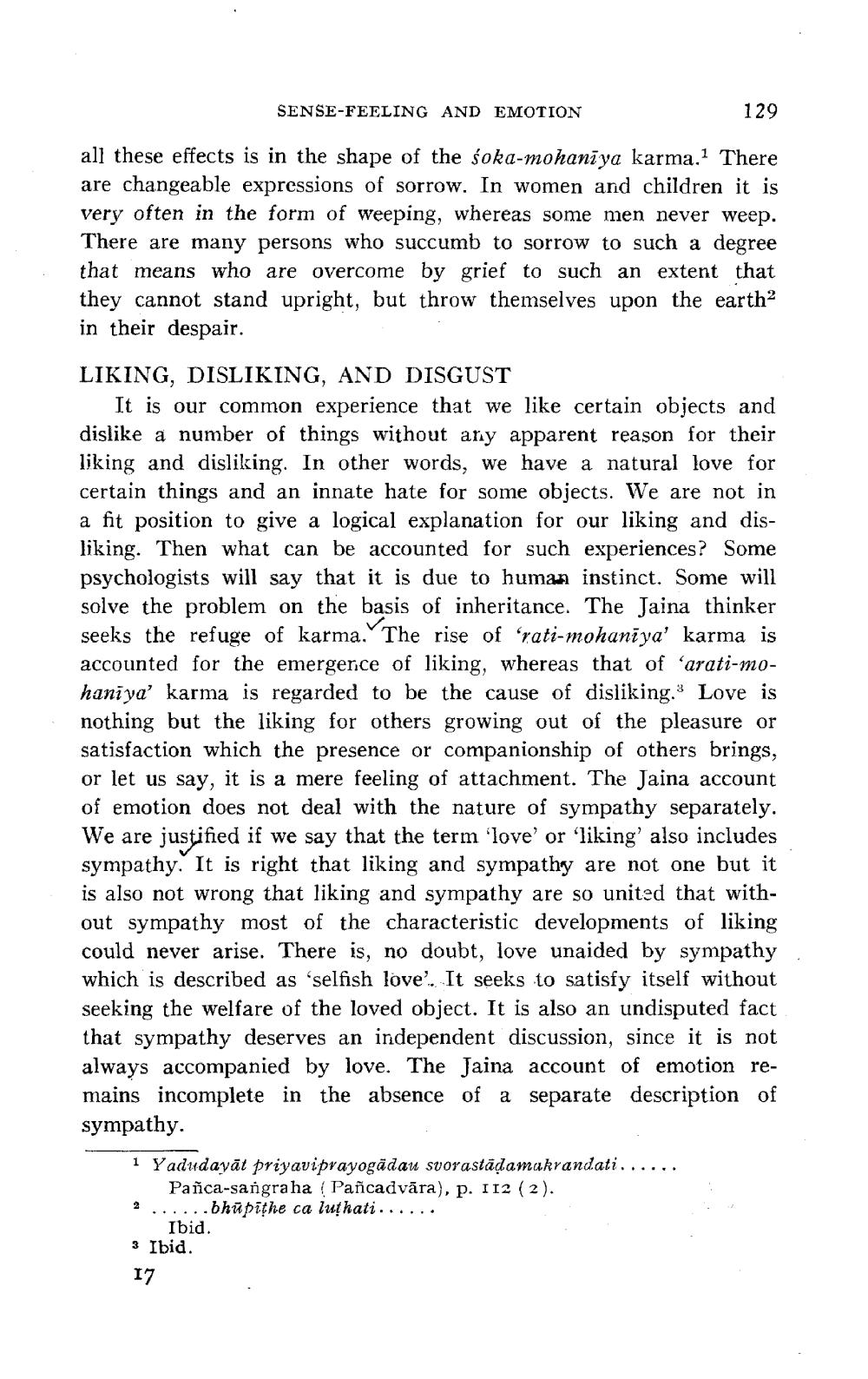________________
SENSE-FEELING AND EMOTION
129
all these effects is in the shape of the soka-mohani ya karma.1 There are changeable expressions of sorrow. In women and children it is very often in the form of weeping, whereas some men never weep. There are many persons who succumb to sorrow to such a degree that means who are overcome by grief to such an extent that they cannot stand upright, but throw themselves upon the earth? in their despair.
LIKING, DISLIKING, AND DISGUST
It is our common experience that we like certain objects and dislike a number of things without any apparent reason for their liking and disliking. In other words, we have a natural love for certain things and an innate hate for some objects. We are not in a fit position to give a logical explanation for our liking and disliking. Then what can be accounted for such experiences? Some psychologists will say that it is due to human instinct. Some will solve the problem on the basis of inheritance. The Jaina thinker seeks the refuge of karma. The rise of ‘rati-mohaniya' karma is accounted for the emergence of liking, whereas that of ‘arati-mohanīya' karma is regarded to be the cause of disliking. Love is nothing but the liking for others growing out of the pleasure or satisfaction which the presence or companionship of others brings, or let us say, it is a mere feeling of attachment. The Jaina account of emotion does not deal with the nature of sympathy separately. We are justified if we say that the term 'love' or 'liking' also includes sympathy. It is right that liking and sympathy are not one but it is also not wrong that liking and sympathy are so united that without sympathy most of the characteristic developments of liking could never arise. There is, no doubt, love unaided by sympathy which is described as 'selfish love. It seeks to satisfy itself without seeking the welfare of the loved object. It is also an undisputed fact that sympathy deserves an independent discussion, since it is not always accompanied by love. The Jaina account of emotion remains incomplete in the absence of a separate description of sympathy.
1 Yadudayāt priyaviprayogādau suorastādamakrandati......
Pañca-sangraha (Pañcadvāra), p. 112 (2). 2 ... ...bhūpīthe ca luthati......
Ibid. 3 Ibid. 17




